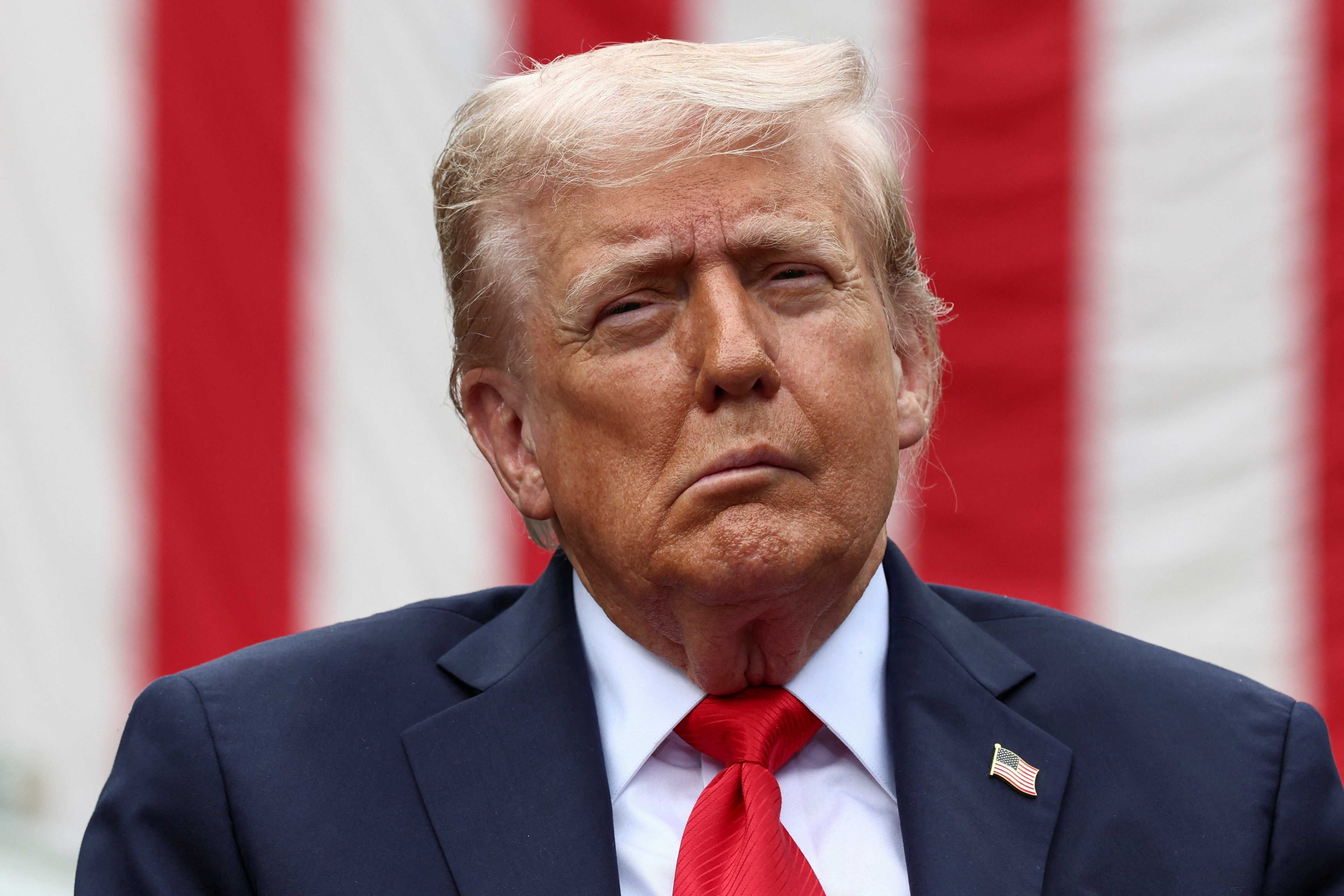U.S. President Donald Trump attends a ceremony marking the 24th anniversary of the September 11, 2001, attacks on the United States at the Pentagon, in Washington D.C., U.S., September 11, 2025. REUTERS/Evelyn Hockstein
President Donald Trump got his COVID booster shot weeks after demanding pharmaceutical companies provide proof of their effectiveness.
"Many people think they are a miracle that saved Millions of lives. Others disagree!" Trump said of COVID-19 medications such as vaccines made by Pfizer, Moderna and other pharmaceutical firms. "With CDC being ripped apart over this question, I want the answer, and I want it NOW."
Trump may have been working to rile the anti-vaxx wing of his supporters, many of whom — like his appointed Secretary of Health and Human Services — argue that vaccines cause autism.
Regardless of whether vaccine makers made a convincing case, the president appeared to have settled the question with his own behavior.
Social media reacted to the news with animosity and disdain.
“He’ll have autism by Sunday,” announced one commenter on X.
“Talk to your doctor and see if ignoring RFK Jr is right for you,” said another.
Still another critic posted: “a White House source speaking on condition of anonymity said President Trump has been vaccinated against hypocrisy since he contracted bone spurs as a young adult.”
Doug Saunders, International Affairs columnist with The Globe, pointed out on X that Trump got his shot “On the same day his administration sacked dozens of staff at Centers for Disease Control after their ability to require life-saving vaccines was ended.”
“Sure would be nice if the rest of us were allowed to get one,” argued one particularly bitter critic on X, referring to a CDC decision forcing people to pay a health professional for a consultation before getting a COVID shot.
Acting Centers for Disease Control and Prevention Director Jim O'Neill agreed to the new recommendations for the COVID shots from Health Secretary Robert F. Kennedy Jr.'s handpicked Advisory Committee on Immunization Practices, which met in September.
“Informed consent is back," O'Neill said in a statement announcing the new requirement. “CDC's 2022 blanket recommendation for perpetual COVID-19 boosters deterred health care providers from talking about the risks and benefits of vaccination for the individual patient or parent. That changes today."
NPR reports independent vaccine experts challenged that claim.
"There is no basis to claim that routine recommendations prevent doctors from discussing risks and benefits with patients," said Dorit Reiss, who studies vaccine policies at the University of California, San Francisco. "Doctors [have always been] required to get informed consent. Shared clinical decision-making simply signals the vaccine is not routinely recommended and decreases uptake."
